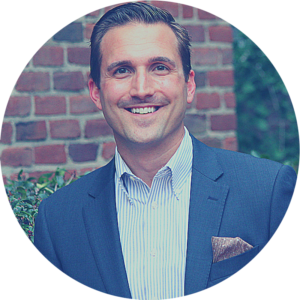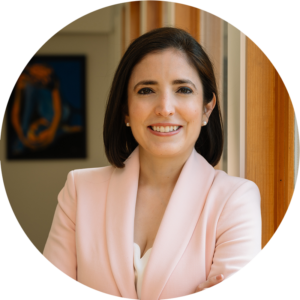Can You Prove You’re Doing Enough?
Written by: Dr. Justin C. Velten and Alejandra Zertuche

The importance of accreditation for a college or university is more than critical. This process continues to evolve with the addition of Diversity, Equity, and Inclusion (DEI) criteria and measurement into the process.
We all know that accreditation is a fact of life in academia. But what happens when accreditation’s focus transitions from academic program offerings, seat-time requirements, and terminal degree faculty ratios, to tangential matters of social importance? Take diversity, equity, and inclusion, for example. These topics have taken the Western Hemisphere by storm over the past 14 months, creating a surge of public policy and social pressure on corporations, federal agencies, and institutions of higher education. Now, as accrediting bodies wrestle with setting standards to best measure DEI, many institutions are still struggling to realign their approach and course offerings.
Colleges and universities will need to address their capacity to measure genuine DEI aptitude improvement over time.
In 2020, many institutional leaders made public statements and signed commitments to local and national pledges around DEI. In some cases, those commitments were clearly outlined with guarantees to update hiring practices, policies, enrollment efforts, etc., while others simply stated their support. Wherever your institutions land on this spectrum, it is important to begin preparing for pending accreditation requirements around DEI. Moreover, colleges and universities will need to address their capacity to measure genuine DEI aptitude improvement over time.
Before getting into the significant accreditation challenges facing higher education, let’s first assess current trends in DEI progress across peer institutions. While this list is accurate for some institutions, maybe your college or university is doing something else. If so, please let us know and share that wisdom with your network. From our experience, there seems to exist a predominant trend in how higher education is addressing DEI.
Trending DEI Initiatives in Higher Education
Talent Acquisition Demographic-Spread. Updates in recruitment and hiring practices are leading to a greater demographic spread throughout the talent acquisition process in some institutions. This model is designed to ensure greater diversity in the overall talent pool, and the effects of these new policies are relatively simple to track.
Unconscious Bias Training. Whether through a recommended book or online training, the topic of unconscious bias has been introduced as the first step to DEI education. If your institution did not engage in unconscious bias learning at some level in 2020, you are among a very small minority of peer institutions.
Elevating a DEI Leader and ERGs. Colleges and universities were not excluded from the larger theme of corporate America’s push to hire or elevate DEI professionals. Whether a DEI HR employee was elevated to a VP-level role, a new DEI Director role was created, or new or existing employee resource groups (ERGs) were highlighted, organizations are promoting these advancements on social media outlets like LinkedIn.
While these are all relevant and important initiatives, they are likely not enough to meet upcoming accreditation guidelines that are sure to deal implicitly with DEI across the institution. It is wonderful for institutions of higher education to show a willingness to self-reflect on and improve the talent recruitment process that needs an overhaul to be more inclusive. Unconscious bias is a very important and relevant topic, but it is not the only topic to consider for talent development initiatives. And formal DEI titles and roles alongside system-wide ERGs can be steps in the right direction, but not if they lack the procedural clout to enact meaningful change. Even when combined, these efforts lack evidence of progress in institutional inclusion, something that has proven elusive to capture.
As new accreditation guidelines roll out, institutions are going to witness a noticeable increase in requirements around DEI. And if history has taught us anything, these updated requirements will require a clear measurement path and documentable data-evidence progress over time. Yet there remains a persistent challenge among institutions to accurately measure these matters beyond talent acquisition numbers, especially related to human sentiment on inclusion. So here are a few things to keep in mind as you prepare for success in DEI during your next accreditation round.
Tackling Accreditation Around DEI
Employee / Student Body Measurement. Counting the number of individuals of a particular population subset hired per quarter is simple. Measuring soft skills around a topic like DEI can be very challenging, especially if you want to get it right. You need to consider how you might involve human DEI competency measurement across the campus community (onsite or online) in a way that provides you and your accrediting body with sound, statistically reliable data that can be easily tied back to your overall campus plan.
Personal Development. You are going to notice a draw away from organizational culture analysis that focuses on this ambiguous idea called the institution when it comes to DEI. Instead, you are going to need to find a way to ensure that individuals can self-assess and reflect, and then develop their personal competencies in DEI.
Track and Report Progress over Time. Until recently it has proven extremely difficult to correctly measure, track, and report the intangibles of DEI, especially human propensities toward inclusion. You will need to ingrain a proven method of evaluating workforce and student body inclusion competency development year over year.
Evidence. Narrative. Evidence. Therein we find success in navigating the ever-changing landscape of accreditation processes. The truth is that we can all afford to make personal and institutional advancements in inclusion competencies, so we can therefore also appreciate the importance we are going to see accrediting bodies place on DEI topics moving forward.
Are you prepared to provide the right narrative and evidence of your campus’ DEI journey?
About the Authors

JUSTIN C. VELTEN, PH.D.
Board Member | Go Culture
Dr. Justin Velten is Chairman of the Board at Go Culture, a leading software for workforce talent development and measurement in diversity, equity, & inclusion (DEI).
Before co-founding Go Culture, Dr. Velten researched and taught Intercultural Communication for 14 years as a scholar and professor, and holds an undergraduate degree in Public Relations, a graduate degree in Human Communication, and a doctorate in Intercultural Communication. He launched Go Culture after a 20 year study of social engagement aptitudes across diversity in over 40 countries. Dr. Velten’s research has been featured in numerous academic journals and international speaking engagements from Hong Kong to Moscow.

ALEJANDRA ZERTUCHE, M.B.A.
Chief Executive Officer | Enflux
The leading subject matter expert leading the commercialization of the company’s academic intelligence platform. Prior to Enflux, Alejandra worked in Academic Assessment at the University of the Incarnate Word, where she became a recognized leader in accreditation & assessment.